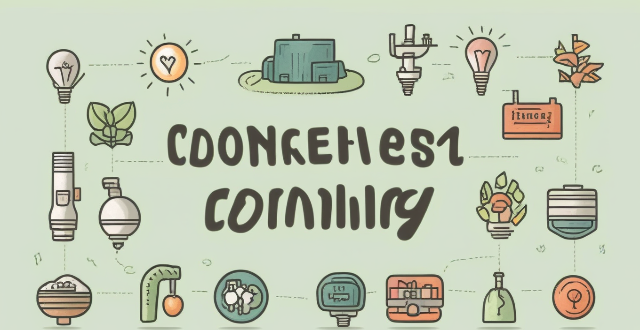The text discusses the connection between energy-efficient appliances and overall energy savings, defining such appliances as those engineered to meet specific efficiency standards. These devices reduce direct energy consumption through lower power requirements and advanced technology, leading to long-term cost benefits and environmental advantages like reduced greenhouse gas emissions. To maximize savings, consumers should research and maintain these appliances properly and replace older models. The relationship underscores the importance of energy-efficient appliances in achieving energy savings for a more sustainable future.

The Relationship between Energy-Efficient Appliances and Overall Energy Savings
Introduction
The relationship between energy-efficient appliances and overall energy savings is a topic of great relevance in today's world, where concerns about environmental sustainability and rising energy costs are prevalent. Energy-efficient appliances are designed to use less power while providing the same level of service as their conventional counterparts. This reduction in energy consumption can lead to significant energy savings over time.
Definition of Energy-Efficient Appliances
Before delving into the relationship, it's essential to define what we mean by "energy-efficient appliances." These are devices that have been engineered to meet certain energy efficiency standards, such as using less electricity or gas than standard models. They often carry an Energy Star label or similar certifications that indicate their efficiency levels.
How Energy-Efficient Appliances Affect Energy Savings
##### Reduction in Direct Energy Consumption
- Lower Power Requirements: Energy-efficient appliances require less power to operate, directly reducing the amount of electricity or gas consumed per unit of operation.
- Advanced Technology: Modern designs incorporate advanced technologies like smart sensors and adaptive controls that optimize performance and reduce waste.
##### Long-Term Cost Benefits
- Reduced Operating Costs: Over the lifetime of an appliance, lower energy usage translates into significant cost savings for consumers.
- Longevity: Many energy-efficient appliances are built to higher quality standards, which can extend their lifespan, further reducing the need for replacements and associated energy costs.
##### Environmental Impact
- Reduced Greenhouse Gas Emissions: Less energy consumption means fewer emissions from power plants, contributing to cleaner air and a reduced carbon footprint.
- Conservation of Resources: Efficient use of energy resources helps conserve natural resources like coal, oil, and gas, which are finite and take a toll on the environment during extraction and consumption processes.
Implementing Energy-Efficient Appliances
To maximize energy savings through energy-efficient appliances, consider the following steps:
- Research and Choose Wisely: Look for appliances with high energy-efficiency ratings and positive consumer reviews.
- Proper Maintenance: Keep appliances well-maintained according to manufacturers' guidelines to ensure they operate at peak efficiency.
- Replace Old Appliances: Upgrading old appliances to more efficient models can lead to immediate and substantial energy savings.
Conclusion
The relationship between energy-efficient appliances and overall energy savings is clear: investing in these appliances leads to direct reductions in energy consumption, long-term cost savings, and a smaller environmental impact. As we move towards a more sustainable future, the role of energy-efficient appliances in achieving energy savings becomes increasingly important.